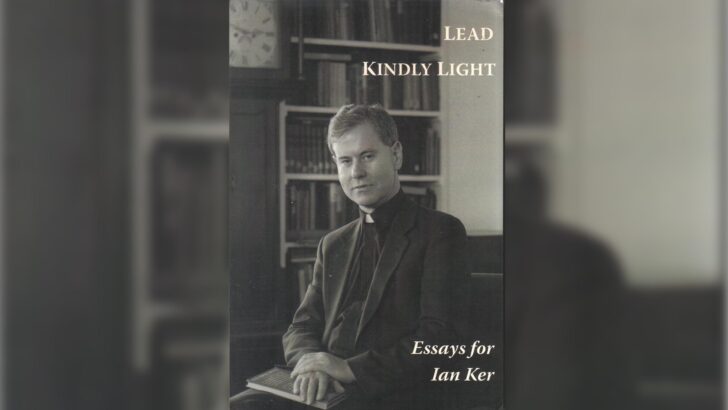Lead Kindly Light: Essays for Ian Kerr, Ed. Paul Shrimpton, (Gracewing £20.00/€22.75)
This book is a festschrift to mark, the editor says, the fourscore years of the life of Ian Kerr, the Newman scholar. He succeeded to the eminence of the late Fr Charles Dessain who sustained over so many years the great project to edit and publish the papers of St John Henry Newman. (The quietly charming Fr Dessain had Irish family connections and paid several visits to Ireland to see his cousins.)
Kerr’s monument was his great biography, which despite the appearance of works by other authors continues to hold the esteem of both scholar and readers. This book was conceived at a meal in Oxford in September 2021.
Those familiar with the production of such books will be amazed as I was to read that this attractively produced book with an international roll call of friends, admirers and academics went from conception to birth in only ten months. Such is the result that sheer love, regard and respect can at times achieve. All honour to Paul Shrimpton, his publisher Gracewing and all those who contributed.
Reminisces
There are some 18 pieces altogether, which move seamlessly from reminisces and tributes from eminent churchmen (including the late Cardinal Pell) through consideration of Newman and devotional theology, Newman as a man of letters in his time, Newman’s ideas and about education and the role of universities, to conclude with what the editor terms “The Great Battle”, the resistance to the rise of heresy as Newman and, by extension Chesterton, saw.
Gracewing is a traditionalist publishing house and naturally many of the articles reflect this outlook. All the material makes for excellent reading. But I have some reservations. The trend of the book is to see Newman as an English saint and scholar. (He was certainly a part of the canon of Victorian literature that I studied at my American university, and to see him in the total range for British writing between 1800 and 1900 was very revealing – this would not I think have been possible in these islands on an undergraduate course.)
I have a major reservation arising from this. The contributors pass over Newman’s Irish experiences. These, however, had an important role of defining the man and his outlook, but one which British writers are happy to ignore. There is no presentation of what kind of Catholic university it was that the Irish bishops wished to have (a reflection of Louvain) and what Newman gave them (an echo of medieval Oxford).
However, this matter is amended in another context, for Dr Shrimpton has edited from the Newman archives My Campaign in Ireland Part II. In this the controversial and “sensitive matters” that caused Newman some anxiety and which he wanted to have kept confidential are addressed. This solid and important volume will be reviewed in the pages shortly.
Meanwhile devotees of Newman will have much to enjoy and to reflect on in this finely produced book.


 Peter Costello
Peter Costello
